Filter by

The environmental rule of law for oceans: designing legal solutions
Our oceans need a strong and effective environmental rule of law to protect them against increased pressures and demands, including climate change, pollution, fisheries, shipping and more. The environmental rule of law for oceans requires the existence of a set of rules and policies at multiple governance levels that appropriately regulate human activities at sea and ensure that pressures on th…
- Edition
- -
- ISBN/ISSN
- 9781009253741
- Collation
- xxxiii, 380 pages; illustration
- Series Title
- -
- Call Number
- 341.4 POZ t

Fishing for fairness : poverty, morality and marine resource regulation in th…
Fishing for Fairness develops an explicitly cultural perspective on environmental politics in the Philippines by analysing the responses of fishers to marine resource regulations. In the resource frontier of the Calamianes Islands, fishing, conservation and tourism provide the context where competing visions of how to engage with marine resources are played out. The book draws on data from ethn…
- Edition
- -
- ISBN/ISSN
- 9781921862663
- Collation
- viii, 223p.; ill.
- Series Title
- Asia-Pacific environment monographs
- Call Number
- 333.91609599 FAB f
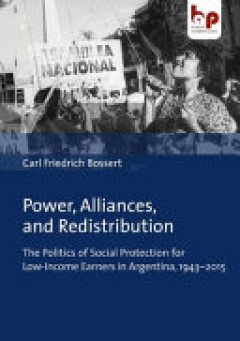
Power, alliances, and redistribution : the politics of social protection for …
Latin America is considered the most unequal continent in the world. Paradoxically, the development of resource-intensive social systems has done little to change the social imbalance. The author traces this paradox using Argentina as an example, uncovering the underlying conflicts of power and interests, and identifying successful strategies for implementing inclusive policies. As the first st…
- Edition
- -
- ISBN/ISSN
- 9783966650281
- Collation
- 373p
- Series Title
- -
- Call Number
- 306.0982 BOS
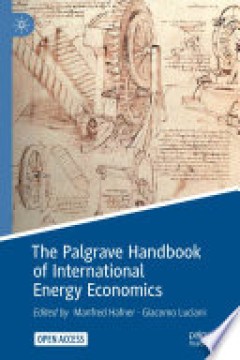
The Palgrave Handbook of International Energy Economics
This open access handbook is distinguished by its emphasis on international energy, rather than domestic energy policies or international geopolitic aspects. Addressing key topics such as energy production and distribution, renewables and corporate energy structures, alongside global energy trends, regional case studies and emerging areas such as the digitalization of energy and energy transiti…
- Edition
- -
- ISBN/ISSN
- 9783030868840
- Collation
- LXVI, 770p. ill.
- Series Title
- -
- Call Number
- 333.79 MAN t
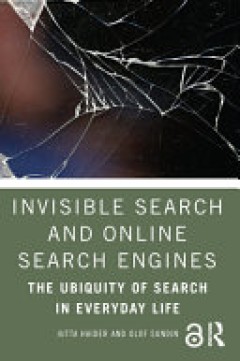
Invisible search and online search engines : the ubiquity of search in everyd…
Invisible Search and Online Search Engines considers the use of search engines in contemporary everyday life and the challenges this poses for media and information literacy. Looking for mediated information is mostly done online and arbitrated by the various tools and devices that people carry with them on a daily basis. Because of this, search engines have a significant impact on the structur…
- Edition
- -
- ISBN/ISSN
- 9781138328617
- Collation
- -
- Series Title
- -
- Call Number
- 025.0425 HAI
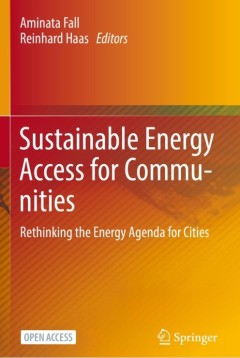
Sustainable energy access for communities : rethinking the energy agenda for …
This open access book examines the transition to sustainable energy systems in emerging cities. Experts from around the world present case studies from different countries and discuss efforts were needed for achieving the United Nations Sustainable Development Goals (SDGs). The authors look into the issue of environment vs. economics and discuss the question of whether the energy transition goa…
- Edition
- -
- ISBN/ISSN
- 9783030684105
- Collation
- xxiv, 170p. : ill.
- Series Title
- -
- Call Number
- 333.794 SUS s

Digital Histories: Emergent Approaches within the New Digital History
Historical scholarship is currently undergoing a digital turn. All historians have experienced this change in one way or another, by writing on word processors, applying quantitative methods on digitalized source materials, or using internet resources and digital tools. Digital Histories showcases this emerging wave of digital history research. It presents work by historians who – on their ow…
- Edition
- -
- ISBN/ISSN
- 9789523690219
- Collation
- -
- Series Title
- -
- Call Number
- 025.069 FRI d
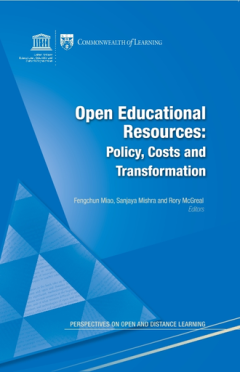
Open Educational Resources: Policy, Costs and Transformation
The Open Educational Resources (OER) movement has grown substantially since the term was first adopted at UNESCO’s 2002 Forum on the Impact of Open Courseware for Higher Education in Developing Countries (UNESCO, 2002). Since then, there has been a significant increase in the development, use and sharing of OER as more and more governments and institutions come to realise their value. OER can…
- Edition
- -
- ISBN/ISSN
- -
- Collation
- xv, 231p : ill.
- Series Title
- -
- Call Number
- 681.14 OPE

Overwhelmed by overflows? : How people and organizations create and manage ex…
This transdisciplinary volume investigates the ways in which people and organisations deal with the overflow of information, goods or choices. It explores two main themes: the emergence of overflows and the management of overflows, in the sense of either controlling or coping with them. Individual chapters show the management of overflows taking place in various social settings, periods and pol…
- Edition
- -
- ISBN/ISSN
- 9789198469813
- Collation
- xi, 212p : ill.
- Series Title
- -
- Call Number
- 658.403 CZA o
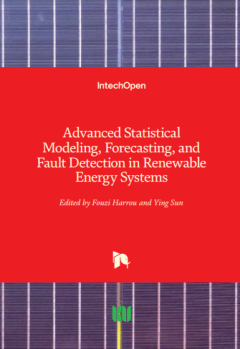
Advanced Statistical Modeling, Forecasting, and Fault Detection in Renewable …
Fault detection, control, and forecasting have a vital role in renewable energy systems (Photovoltaics (PV) and wind turbines (WTs)) to improve their productivity, ef?ciency, and safety, and to avoid expensive maintenance. For instance, the main crucial and challenging issue in solar and wind energy production is the volatility of intermittent power generation due mainly to weather conditions. …
- Edition
- -
- ISBN/ISSN
- 9781838805456
- Collation
- xiv, 197 p. : ill
- Series Title
- -
- Call Number
- 621.042011 ADV a
 Computer Science, Information & General Works
Computer Science, Information & General Works  Philosophy & Psychology
Philosophy & Psychology  Religion
Religion  Social Sciences
Social Sciences  Language
Language  Pure Science
Pure Science  Applied Sciences
Applied Sciences  Art & Recreation
Art & Recreation  Literature
Literature  History & Geography
History & Geography